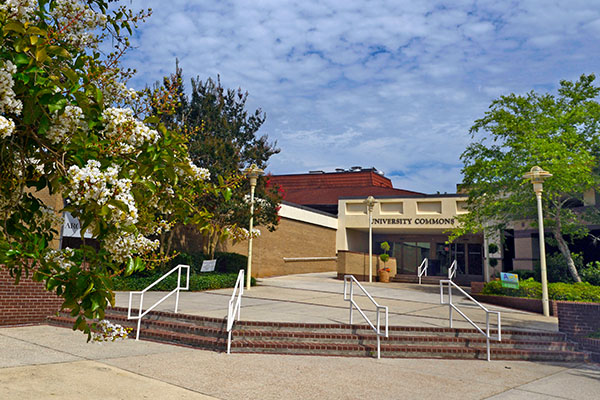Events with Alcohol
Per University Policy SA-24.02-07/15, student organizations may plan and host events with alcohol. The presence of alcohol at a student-sponsored event creates a need to more closely control the event and a need for the sponsoring student organization to pay greater attention to the environment. Those who plan or choose to attend events where alcoholic beverages will be offered and consumed assume full legal responsibility and liability for the consequences of their actions. The university holds Student Organizations specifically responsible for the actions of their organization, members, and guests. Events with alcohol must comply with all applicable local and state laws and University regulations.
Relevant Policies and Procedures
UWF Alcohol Policy for Student Organization Sponsored Events SA-24.02-07/15
Fraternity and Sorority Life Procedures
Frequently Asked Questions
The possession, sale, use, or consumption of alcohol beverages, while on UWF property or during an off-campus event, in any situation sponsored or endorsed by the chapter, or at any event an observer would associate with the chapter, must be in compliance with any and all applicable laws of the state, county, city, and University. In the United States, it is always illegal for an individual under the age of 21 to consume alcoholic beverages.
No alcoholic beverages may be purchased through organization funds nor may the purchase of alcohol for members or guests be undertaken or coordinated by any member in the name of or on behalf of the organization. "Open" bars and the purchase or use of a bulk quantity or common source(s) of alcoholic beverages, for example, kegs or cases, are prohibited. Cash bars (where the individual purchases their drink directly from the bartender or server) or Bring Your Own Beverage events are the only events that will be approved.
Only at closed events where the beverages are being served by a licensed vendor. Only beer and wine are permitted at BYOB events.
“Drinking games” are prohibited. The definition of drinking games includes but is not limited to the consumption of shots of alcohol, liquor or alcoholic beverages, the practice of consuming shots equating to one’s age, “beer pong,” “dares” or any other activity involving the consumption of alcohol which involves competitive elements, duress or encouragement related to the consumption of alcohol.
Self-service common source containers, including kegs and punch bowls, are prohibited.
Organization events are defined as those activities sponsored or endorsed by the organization, or at any event, a reasonable observer would perceive as an organization activity. Questions to consider include:
- Is the event being hosted or planned by one or more members of the organization?
- Are members and leaders of the organization supporting the event in any way?
- Is the event listed or advertised on the organization’s social media accounts?
- Do online invitations or other forms of promotion refer to the organization by name or imply the involvement of the organization through the use of symbols, colors, etc.?
- Do prospective or eventual attendees refer to the event as being hosted by the organization?
Organizations hosting events with alcohol are responsible for their attendees. Attendees may seek to utilize false identification, sneak alcohol or drugs into the event, or disregard directions from the organization. Ultimately, the organization must apply reasonable procedures to reduce negative outcomes and ensure policy compliance and follow through on those procedures. If underage students are found to have consumed alcohol at the event, or if attendees who have “pre-gamed” end up suffering from alcohol poisoning, or if an intoxicated guest causes property damage or injury the organization may be found in violation of University policies or local and state laws. Before hosting an event with alcohol, student officers, members, and advisors should discuss their ability to manage the event effectively and prevent or reduce negative outcomes.
Event with Alcohol Registration Overview
- Step 1: The student organization develops the Alcohol Risk Management Plan for the event. The plan should address the items in the Alcohol Risk Management Plan Outline. The plan and other event details are submitted for review via EMS in MyUWF. Requests must be submitted at least three weeks prior to the event date.
- Step 2: Student Organizations and/or Fraternity and Sorority Life (FSL) team members, UWF Police, and other relevant stakeholders will review the registration request. The requestor will answer questions and provide additional information as needed. There is no guarantee that event registration will be approved prior to the event date, but the organization’s submission of a complete and thorough Risk Management Plan and responsive attention to requests will facilitate a timely approval process.
- Step 3: Event managers and sober monitors will meet with Student Organizations/FSL to review the event plan.
- Step 4: Upon approval from all parties, the event registration will be approved. Organizations that plan and promote events prior to registration approval do so at their own risk. Events with alcohol may not be held without registration approval.
- Step 5: By the end of the first business day following the event, the student organization will submit an event report.
The event report should be emailed to the studentorgs@uwf.edu or fsl@uwf.edu by the end of the first business day after the event. Failure to provide an accurate and complete report of the event may constitute a violation of University policy.
The report should include:- Summary of the event - Was it successful? Did things go as planned? Did you have to alter the plan in any way?
- Attendee Register - complete list of attendees
- For closed events, the register should indicate each guests’ member sponsor
- Incidents - list of potential concerns related to injury, serious illness, altercations, and any other incident that involved emergency or law enforcement personnel



